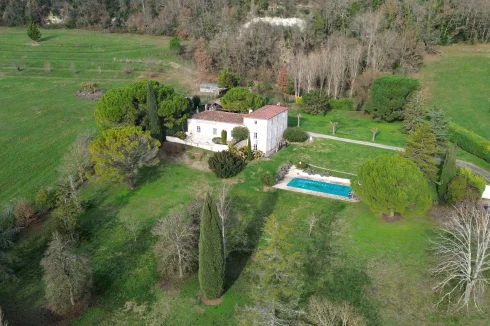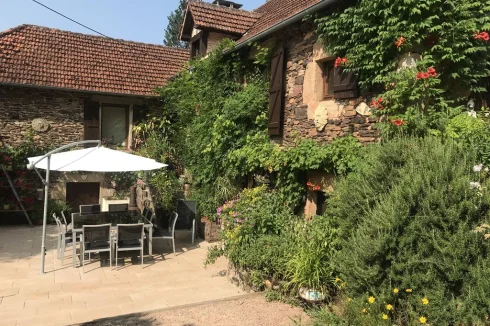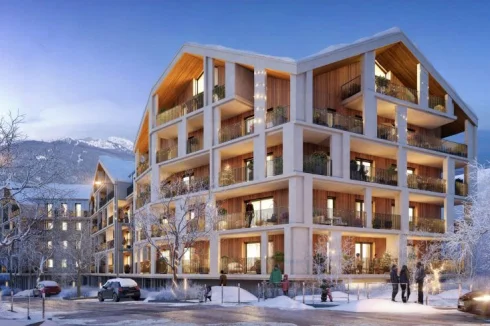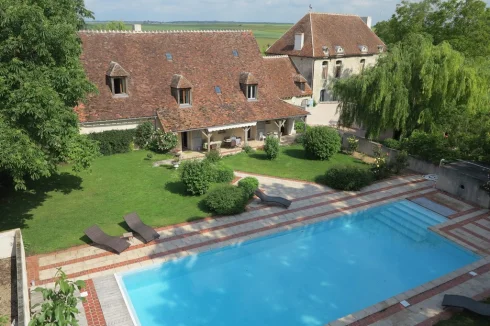Brexit and Residence Rights in France
Thursday 07 March 2019
What are the rights of residence of economically inactive UK nationals who live in France on a low income?
We have stated in previous articles (see below) that in the overwhelming majority of cases such anxiety is misplaced, as rights of residence are protected under European law, which itself has been enshrined in French law. The draft Withdrawal Agreement confirms those rights, and there have also been numerous statements from both the French and UK governments to the same end.
In addition, whilst obtaining a residence permit with the UK still in the EU will give comfort to those worried about their future, it will still need to be exchanged for a new permit when the UK finally exits, with the French government stating: 'Les titres portant la mention « citoyen Union européenne » obtenus avant la date de retrait du Royaume-Uni de l’Union européenne.......... devront être remplacés par le nouveau titre prévu par l'accord.'
Such has been the level of demand that many prefectures are now refusing to issue new permits, or are only granting them with a one-year validity period.
Although there has been a great deal of heated discussion and activity about the consequences of a ‘no-deal’ on British nationals in France, the prospect of the UK 'crashing out' of the EU has never been a realistic scenario, as we indicated in 2016. The empty threat of it by the UK in the withdrawal negotiations has merely served to underline the weakness of their negotiating position.
Nevertheless, it is clear from all available evidence that there are a sizable number of UK nationals living in France on a subsistence level income, without health cover, and ‘under the radar’ of the French tax authority. In short, they are living in France illegally. They would certainly be well-advised to try and regularise their status prior to the UK leaving the EU.
The same applies to those British nationals who live in France on a part-time basis, often for many months a year, but remain fiscally resident in the UK. Although their position is less urgent, they will need to determine whether to adopt residency in France, or restrict their stays to less than 90 days in any 180 days.
Whilst short-term visits to France will remain visa-free after Brexit, the terrorist threat and migrant crisis in Europe has changed travel for us all, as we touched on in our article Travel to France after Brexit.
'Freedom of Movement'
Although originally intended only to apply to ‘workers’, since 1990 there has existed a general right of freedom of movement in Europe, independent of the exercise of any economic activity.
The right of residence in another Member state for those who are economically inactive is subject to the double condition that:
- the individual has sufficient resources for himself and his family members not to become a burden on the social assistance system of the host Member State
- they have comprehensive medical cover.
However, as there are no administrative formalities on entry for any EEA national seeking to live in France, those seeking to relocate only need to be in possession of a passport or identity card to live in France and do not need to show sufficient resources or health cover.
As these tests are going to become more significant over the next few years, just what do they mean?
Sufficient Resources
European law does not allow Member States the right to fix the amount of resources they consider sufficient, but must take into account the circumstances of the household.
As the European Commission points out, "Member States may not set, directly or indirectly, the amount of resources they consider sufficient and below which the right of residence may automatically be refused. National authorities must take into account the personal situation of the person concerned."
However, the law also states that any amount that may be used for guidance purposes may not exceed the level below which nationals of the host State may receive social assistance, nor, where relevant, the minimum social security pension paid by the host Member State.
In considering whether a household has ‘sufficient resources’ the European Commission has stated that these do not have to be regular and can be in the form of lump-sum capital.
The European Court has also ruled, in a case concerning the Netherlands, that the legislation of a Member State which requires 'inactive' citizens to provide proof of sufficient resources for a period of at least one year is "a manifestly disproportionate condition in relation to the legitimate interest of Member States not to see the beneficiaries of the right of residence become an unreasonable burden on their public finances."
In France, the requirements of European law have been interpreted to mean that the adequacy of resources is assessed taking into account the flat-rate amount of the minimum income support benefit, called the Revenu de Solidarité Active (RSA).
The monthly level of the RSA, depending on family composition, is currently as follows: UPDATE Nov 2020 - The French government have stated that the resources test will be satisfied if the HOUSEHOLD (irrespective of size) has the minimum amount for a single person ie €565.
| RSA Income Support | |||
| Dependants | Single Person | Couple | |
| 0 | €565 | €847 | |
| 1 | €847 | €1,017 | |
| 2 | €1,017 | €1,186 | |
| Each Add | €226 | €226 | |
If the person concerned is 65+, then the test used is the amount of the minimum allowance for the elderly, called the Allocation de solidarité aux personnes âgées (Aspa). The current thresholds for Aspa are: UPDATE Nov 2020 The French government have stated that ASPA will NOT be used.
| ASPA | ||
| Single Person | Couple | |
| €903 | €1,402 | |
Health Insurance
In terms of the obligation to have health cover, neither European or French law specifies precisely the type of cover that is necessary to meet the obligation of health cover, albeit that it should be ‘comprehensive' medical cover.
Nevertheless, for the purposes of making an an application for a residence permit, in guidance issued by the Ministry of Interior, it states that for the first year of residence a European Health Insurance Card (EHIC) is sufficient, stating: 'pour la première année de séjour, la carte européenne d’assurance maladie ou le formulaire européen de continuité de la prise en charge dans le pays d’origine est accepté'. Care is needed how that is interpreted, as health reimbursements under the EHIC scheme are only made to visitors to France.
A private health insurance policy is not in law excluded and would meet the requirement for health cover, provided it offered good coverage.
In practice, it is possible to apply for admission to the French health system, despite the fact that French law appears to bar economically inactive EEA retirees from obtaining access under 5-years legal residence. Our own research indicates that most applications are being accepted by the central assessment centre in Nimes.
Where there is prolonged delay or refusal, this is normally due to the fact that the household cannot demonstrate sufficient resources, although even here all applications are considered on a ‘personal basis’.
And, as we have stated in the past, in stroke of irony, beyond the transition period it may actually be easier for early retirees from the UK to obtain access to the health system, as they will not be captured by the 5-year residence rule that affects EEA nationals.
This is confirmed by the French government health website, which states: 'If you are not a European citizen ……………You can make an application after 3 months of residency. If you are a European citizen and you are not eligible to get a S1 form, you can't claim for the PUMa's benefits under 5 years of permanent residence unless your situation has changed while you've been living in France (change of income, divorce, long term disease, etc.).'
Conclusion
Nevertheless, in the case of existing UK nationals in France, if they are unable to meet the twin test of sufficient resources and health cover, it would be impossible for them to obtain a residence permit to live in France when the UK finally leaves the EU.
Whether British nationals in France post-Brexit without sufficient resources could be asked to leave the country remains more questionable. Although it may happen in isolated cases, a more likely general outcome is a residence permit granted on an annual basis. The French government have stated that they will take a 'generous and flexible' view of the position of British nationals. In addition, although annually thousands of households are ordered to quit France, in a large percentage of cases the order is not enforced.
In considering such a case the French authorities would have to have regard to European law, which states that such action should only be taken where there is either a necessity to protect public order, or to protect public finances.
There are also likely to be extenuating circumstances in many cases, such as age, death of spouse, divorce, medical circumstances, or duration of residence in France. Where, however, the person claims a right of residence on the basis of duration of residence the authorities are likely to be less sympathetic if they have not made an income tax declaration. Whatever the level or your source of income, if you are resident in France you are required to make an annual tax declaration. Similarly, if there has been no attempt at assimilation, notably in the development of language competence, might the case be viewed less favourably.
One option open to such households would be to become employed or start a business prior to the UK finally leaving the EU in 2020/21. Neither European law or French law imposes a test of resources on those who are employed, and business registration offers automatic health registration.
Such a step may well work in most cases, although even here in considering entitlement to a residence permit in line with European law the prefectures do undertake an examination of whether their work is an 'effective and genuine' activity, which must not be on ‘such a small scale as to be regarded as purely marginal and ancillary’.
In terms of what is considered to be 'effective and genuine' employment, EU case law has determined this to be a minimum of 10 hours per week. Some prefectures are sticking to that and looking for earnings or business profits of around that amount (ie 10 hrs at the minimum working wage), but other prefectures are expecting people to earn/show a profit of the RSA or ASPA levels for their family composition. This is contrary to EU law and can be challenged in the appeal system and in the courts.
In exceptional cases, if the prefecture consider that the business would not be capable of ensuring a sufficient means of subsistence for the household it would still be possible for them to refuse permanent residence in France.
We have introduced a Brexit Helpline for those of you who have questions about the whole process. The service is free of charge. If you have a question, send it to us via the form on our Brexit Helpline page.
Thank you for showing an interest in our News section.
Our News section is no longer being published although our catalogue of articles remains in place.
If you found our News useful, please have a look at France Insider, our subscription based News service with in-depth analysis, or our authoritative Guides to France.
If you require advice and assistance with the purchase of French property and moving to France, then take a look at the France Insider Property Clinic.





